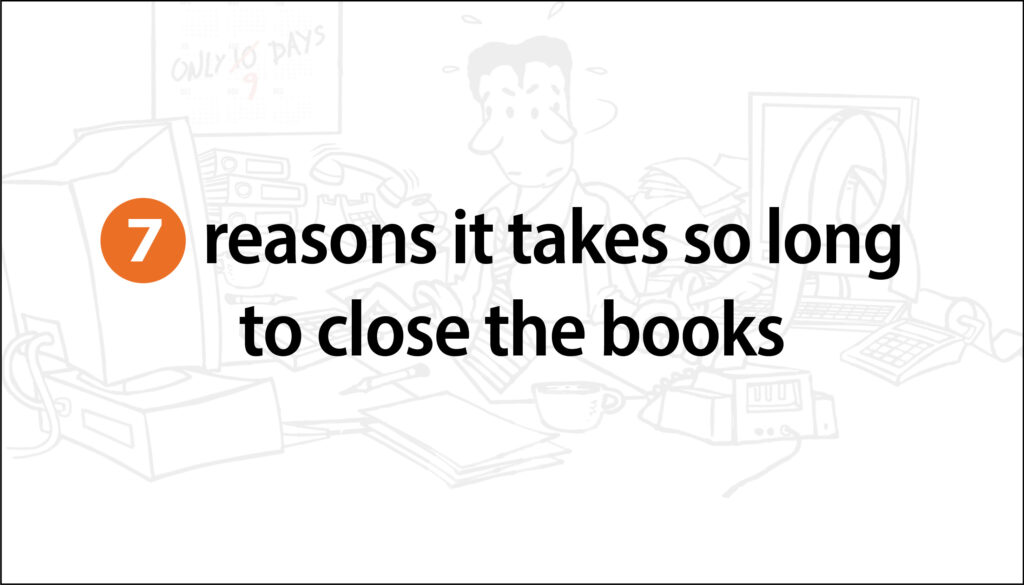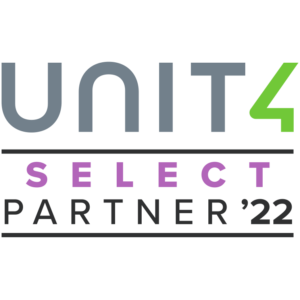Do any of these seven reasons sound familiar?
Reason #1: Manual Spreadsheets
These are one of the more obvious and common speed bumps in the close process. Using spreadsheets is one of leading indicators of companies who are good candidates for improvement in the close process. Spreadsheets have evolved over the years but they have their limitations. Like all tools, it’s important to use the right tool for the job. What they aren’t particularly well suited for is collecting data from disparate ERP systems and handing off that data. Using manual spreadsheets often add an average of 3-4 days to your close cycle. Plus, if you move off of spreadsheets you can help avoid the next three reasons: people, errors and duct tape.
Reason #2: People
In a process that is largely manual speed is dictated by the pace of the slowest moving element. That means that you can’t close the books until you get whatever you need from other team members (who are often in another office). Your speed, therefore, will be dictated by the pace of the slowest moving individual. “Did Victor get pulled into crunching the numbers for that merger possibility? Great, that means we’ll be closing the books two days later this month. No, there is no “i” in close.
Reason #3: Errors
This problem is an offshoot of people and manual spreadsheets. People are human. Even though finance people are often superhuman, they are fallible. That means errors happen. And when they’re caught, you have to go back and figure out what happened exactly. More importantly, you need to recrunch the numbers. It’s been said that there’s never enough time to do the job. But there’s always time to do it over. Imagine never having to do the job over because of a mistake. Yes, it’s possible. It looks something like this.
Reason #4: Duct Tape
Manual Spreadsheets. An ERP system in the US. Another ERP system in France. Perhaps another system in Sweden. You will have to essentially use Duct Tape to bring all these systems together. To bring all these numbers together. Closing the books isn’t going to be easy. Or is it? Imagine if there was a system that could bring disparate ERP systems together. That’s what Unit4’s Cash and Consolidations makes possible. It brings all your data together. And, unlike duct tape, it does it automatically. Click below to find out how it works.
Reason #5: Vacations
Vacations are important. There is more and more research addressing not just the importance but NEED for vacations. If you want to be productive over the long term, you MUST take time off. But what happens when Sven takes two weeks off and he’s responsible for consolidations for his region but everyone in the home office in the US is waiting for him. When Sven doesn’t provide his numbers then the global books can’t be closed. The solution is not to cancel vacations. And it’s not to ask everyone to work harder when Sven’s on vacation. It’s to work smarter, not harder. Like using software to bring all your disparate data together. Simply. Automatically.
You may think you don’t have enough time to attend our 30 minute webinar, Shorten the Close Cycle, because you’re busy closing the books. But that is the very reason to attend.
Reason #6: Fear
For some people involved in the closing process there are concerns that they won’t have anything to do. Often this is a time of constant, frenetic movement. Will someone think we’re not needed. Again, I think you’d be hard pressed to find a controller who couldn’t be leverage in a more strategic way beyond the transactional nature of their old job.
Reason #7: No Close Process
Many companies close the books, they just don’t have a repeatable process to do it. A lack of an understanding of the critical path of the close and efforts to reduce the items in the critical path is often what gets in the way of an efficient close process. A company with multiple currencies, multiple companies can benefit from a process grounded in project management best practices. For the uninitiated that’s a systematic and strategic way to approach the close. Sometimes the close process that really isn’t a process is a product of “that’s just the way we do it here” thinking. If, instead, you think of closing the books as any other project, you can remove reason #7 for why you may be taking so long to close.
These aren’t just seven reasons it takes so long to close the books. They’re seven reason you should attend our 30 minute webinar, shorten the close process. If you’re using manual spreadsheets, deal with multiple currencies and have disparate ERP systems, this webinar is for you.







